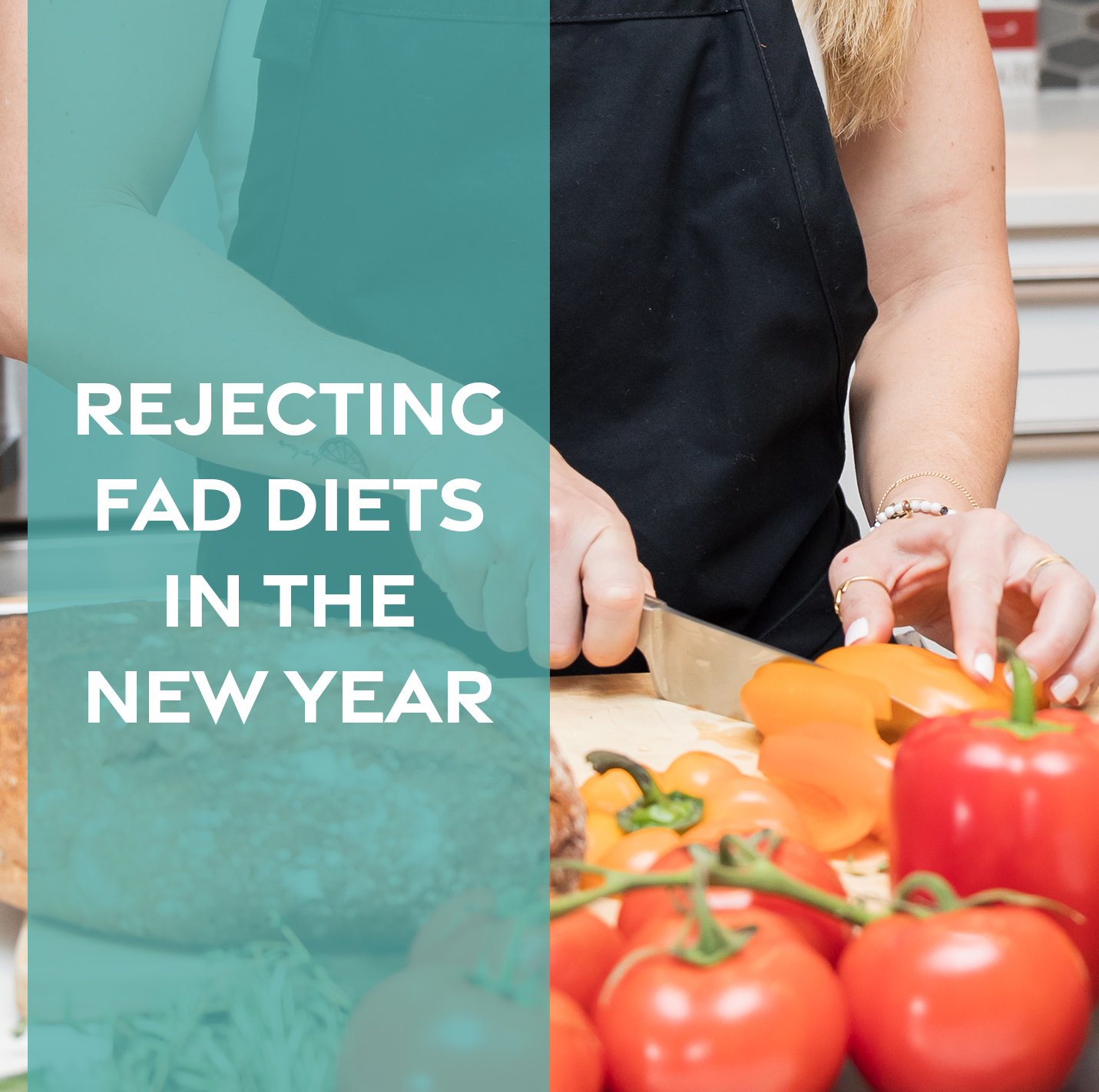As the new year begins, many of us feel it’s the perfect time to reset and make changes—whether it’s adopting healthier habits, losing weight, or simply feeling better in our own skin. But as January rolls in, so does the wave of tempting “quick-fix” fad diets promising rapid results. From juice cleanses to extreme low-carb plans, these diets often seem like an easy answer to achieving our goals. Headlines like “lose x amount of lbs in x amount of weeks” will catch your eye. But here’s the truth: they rarely lead to lasting success and can sometimes even harm your health.
This year, instead of falling into the trap of the latest diet trend, why not take a different approach—one that focuses on long-term health, balance, and sustainable change?
Here’s why fad diets don’t work:
1. Lack of Long-Term Results
Fad diets are often not designed with long-term health in mind. They usually involve severe caloric restriction or the elimination of entire food groups, which may lead to rapid weight loss in the short term. However, these diets are not sustainable because they are difficult to maintain over time. Approximately 95% of people who lose weight on restrictive diets will regain it within 1-5 years if they do not adopt lasting lifestyle changes. In some cases, they might gain back more weight than they lost, a phenomenon known as “weight cycling” or “yo-yo dieting.”
2. Nutrient Deficiencies
Many fad diets cut out entire food groups (e.g., carbs, fats, dairy) or encourage eating large amounts of specific foods while restricting others. This can lead to nutrient imbalances, which may cause deficiencies in essential vitamins and minerals (such as calcium, vitamin D, or fiber). This can also lead to some larger medical complications such as diabetes, high cholesterol, liver damage, and kidney disease. Ultimately, it negatively affects health in the long run.
3. Metabolic Slowdown
Restrictive diets can slow down the body’s metabolism, especially if they are very low in calories. When you drastically reduce your calorie intake, your body goes into “starvation mode” to preserve energy. This comes with many negative health effects, including, slowed metabolism, muscle loss, bone loss, hormonal imbalances, fatigue, decreased cognitive function, and more.
4. Psychological Impact
Fad diets often promote an unhealthy relationship with food. They can encourage feelings of guilt or shame about eating “forbidden” foods, and restricting foods can lead to disordered eating behaviors like binge eating or emotional eating. These diets may also create unrealistic expectations, leading to frustration and failure when results are not as fast or dramatic as promised. Studies find that dieting behaviors, such as those promoted by fad diets, are linked to an increased risk of developing eating disorders
Why working with a dietitian is a better, more sustainable approach:
1. Personalized Guidance
A registered dietitian works with you to create a nutrition plan that suits your unique lifestyle, preferences, and health needs. Unlike fad diets, which offer generic solutions, a dietitian can help tailor an eating plan that is sustainable, flexible, and balanced—one that promotes long-term health, rather than quick fixes.
2. Focus on Health, Not Just Weight
A dietitian prioritizes overall well-being rather than just focusing on weight. They emphasize the importance of balanced nutrition, proper portions, and the relationship between food and health. This holistic approach can improve energy, digestion, and mood while also reducing the risk of chronic disease.
3. Education and Empowerment
One of the key benefits of working with a dietitian is education. Instead of simply telling you what to eat or avoid, a dietitian helps you understand the principles of healthy eating, empowering you to make informed food choices for life. This education builds long-term healthy habits that don’t require the restriction or deprivation seen in fad diets.
4. Behavioral Support
Dietitians are trained to help address the psychological aspects of eating. They can help you overcome emotional eating, create mindful eating habits, and break unhealthy food cycles that often lead to weight regain after fad diets. The behavioral support and mindful eating techniques that dietitians provide can be a key factor in achieving lasting results.
Choose Health Over Hype
The truth is, there’s no “one-size-fits-all” solution when it comes to nutrition. Everybody is unique, and what works for one person may not be the right choice for you. Instead of buying into the hype of the latest diet trend, focus on nourishing your body with real, wholesome foods, moving in ways that make you feel good, and adopting habits that support your long-term health and well-being.
This year, let’s reject the pressure of quick fixes and embrace a mindset of gradual, sustainable change. The road to true wellness will look different for everyone but no matter what — it’s about feeling confident, healthy, and happy in your own skin. And that’s a goal worth striving for. Make an appointment today with a registered dietitian and get started on your health journey now!

